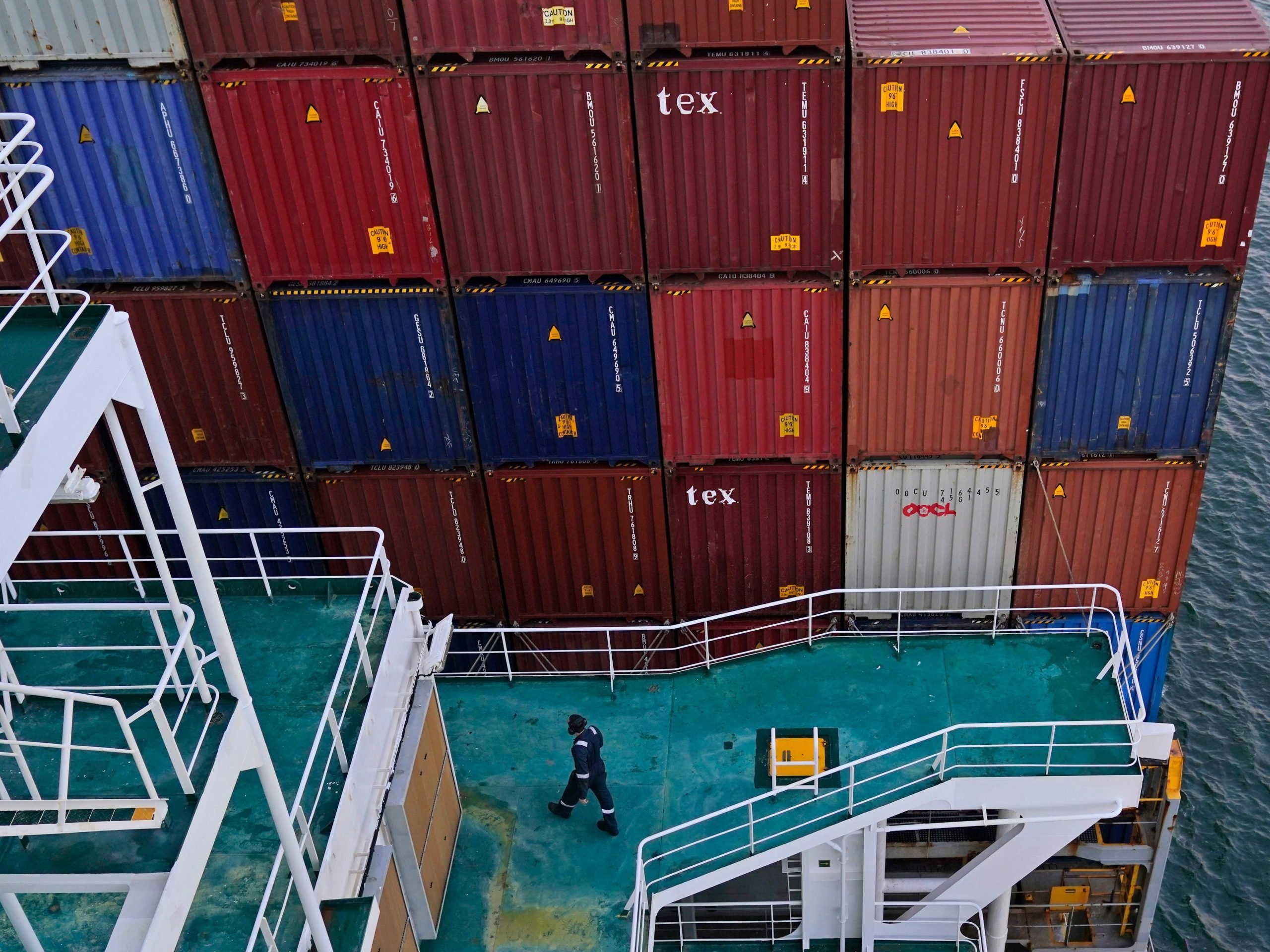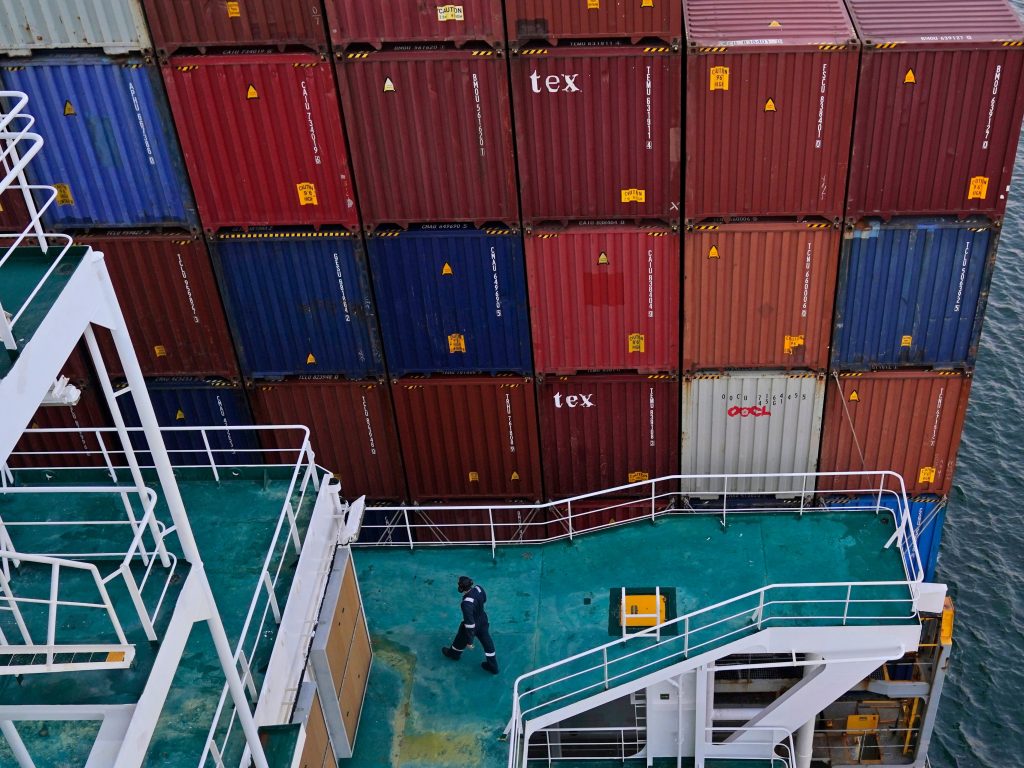
- Wah Kwong Maritime Transport said its application rates are flagging for the first time in decades.
- At the onset of the pandemic, over 200,000 seafarers were stranded at sea.
- Backlogged ports and COVID-19 restrictions threaten morale for crews that transport 90% of all goods.
COVID-19 has taken a toll on shipping crews across the world – and a Hong Kong-based maritime company warns it could cause a lack of seafarers.
Wah Kwong Maritime Transport, a privately owned shipping company, told Bloomberg crew retention and wage inflation have made it difficult to staff ships. William Fairclough, managing director at Wah Kwong, told the publication that applications to work on their freighters are dwindling for the first time in their nearly 70-year history.
"For certain types of ships, it may become very difficult to actually find the crew and you may get delays because of that," Fairclough said.
Maritime has long been an attractive industry, especially for workers from poorer countries, where seafaring represents an opportunity to make up to 10 times the average income in countries like the Philippines. But, the pandemic might have changed the industry for the worse.
Fairclough said wages have risen alongside risks of seafaring since the pandemic started, as sailors wait outside backlogged ports and travel to countries with higher coronavirus infection rates.
US merchant marine Bryan Boyle told Insider that his job became increasingly more difficult at the onset of the pandemic as crew were not allowed to get off the ship when it was docked and spent months isolated at sea.
"Sometimes it did feel like a prison when you were out there," he said. "It's been really tough to be in this industry during the pandemic. Many ships were not allowed to eat with fellow crew mates or go to the gym. You were only allowed in your room or work area."
Over the past two years, COVID-19 has created a "humanitarian crisis" for crews working to deliver 90% of the world's goods. Early on, the pandemic left captains unable to rotate weary crews and stranded over 200,000 seafarers at sea.
Boyle told Insider that many crew members turned to online shopping during the pandemic - the internet and the packages that they would receive at their next stop their only connection to the outside world. Last month, Bloomberg reported that container-ship captains were becoming increasingly concerned about maintaining crew morale as mariners wait weeks on end outside ports.
Even before the pandemic, a Yale University maritime survey found that about a quarter of merchant marines struggled with feelings of isolation and depression while at sea.
Boyle told Insider that life at sea has great potential for camaraderie, but it's easy to fall into patterns of isolation.
"You only have about 22 people on board with you. So a lot of you experience depends on how you get along with those people," Boyle said. "They can quickly become close friends that you organize game nights with or you work out together in the gym - or they can spend their time on their iPhone, keeping to themselves."
A survey of 1,200 mariners by the US Committee on the Marine Transportation System COVID-19 Working Group, conducted during the summer, found that feelings of anxiety and isolation reached all-time highs during the pandemic.
In July, trade associations BIMCO and the International Chamber of Shipping (ICS) warned that there will be a critical shortage of merchant sailors in the next five years if action is not taken to boost numbers.
"We are far beyond the safety net of workforce surplus that protects the world's supply of food, fuel and medicine," ICS secretary general Guy Platten told Reuters. "Without urgent action from governments the supply of seafarers will run dry."

